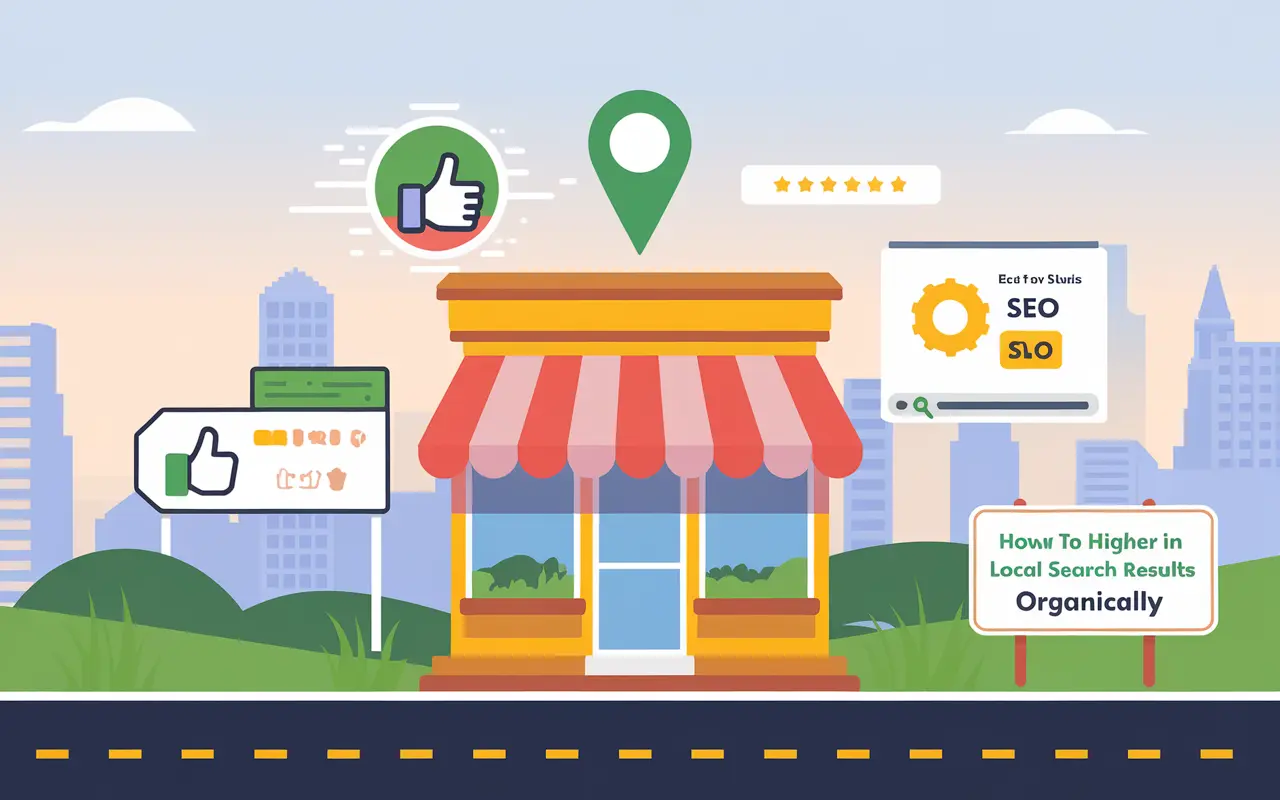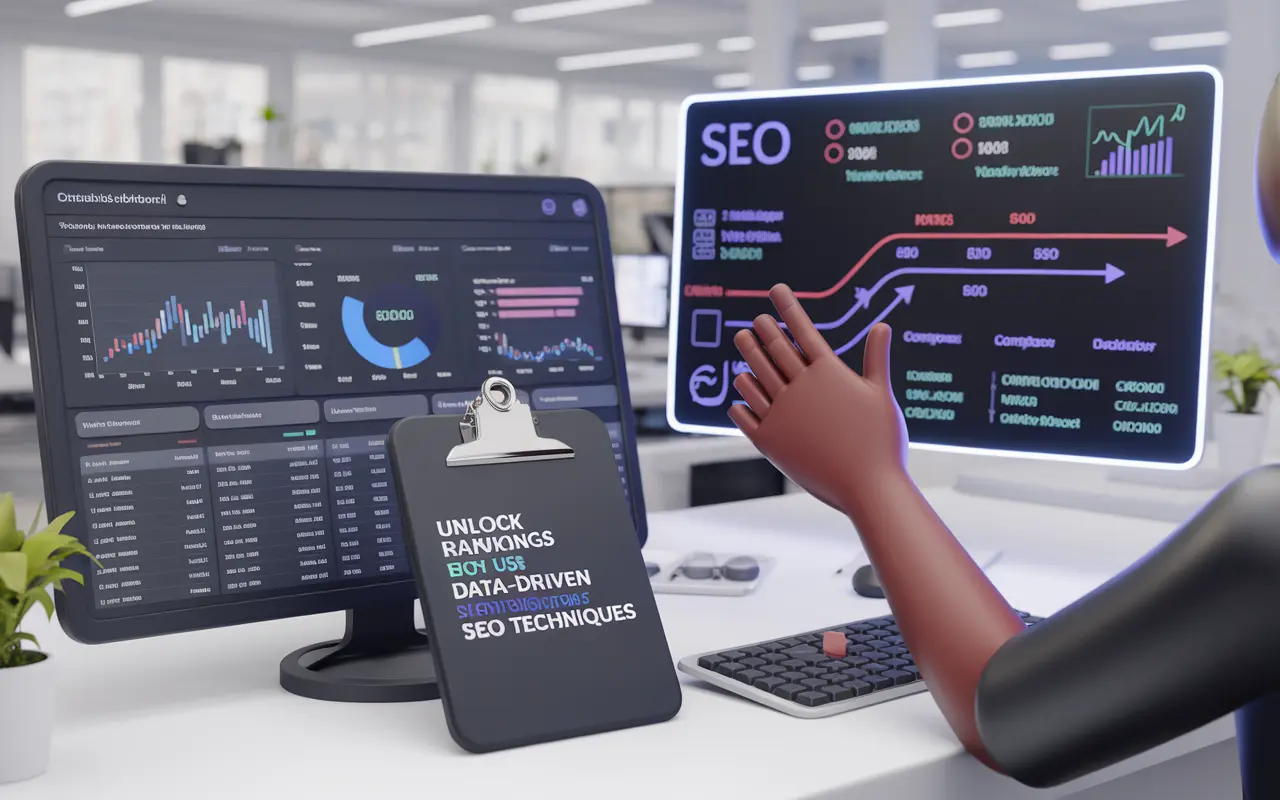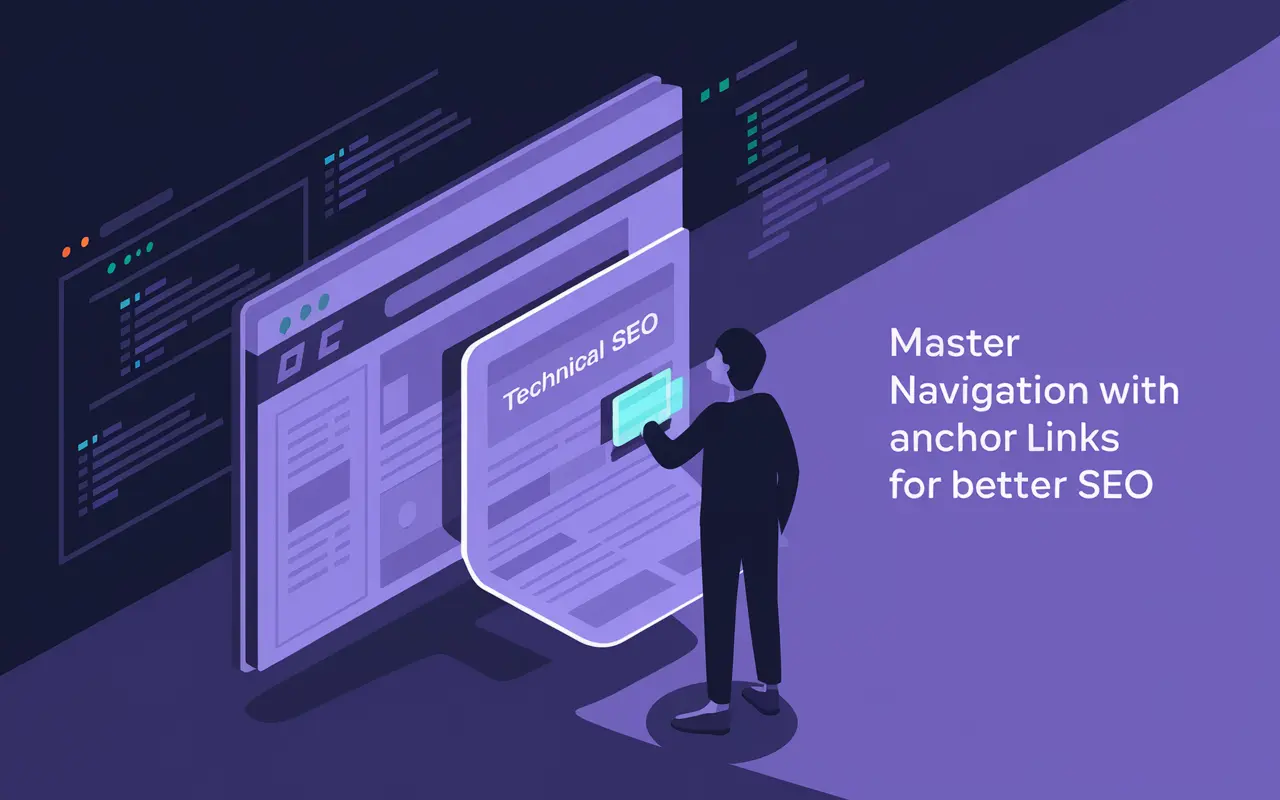What Does It Mean to Rank Higher in Local Search Results?
Ranking higher in local search results refers to improving your business’s visibility on location-based searches, especially on platforms like Google Maps and local pack results. For example, when users search for terms like “dentist near me” or “Italian restaurant in Brooklyn,” Google prioritizes nearby businesses based on relevance, distance, and prominence. Local SEO is a highly targeted digital marketing strategy that helps businesses connect with nearby customers at the exact moment they’re looking for your type of services or products.
In the context of SEO services, ranking locally is an essential component that deals with optimizing online presence and reputation to stand out in map listings, localized search terms, or Google’s Local Pack. It blends traditional SEO with location-focused strategies to drive foot traffic, qualified leads, and calls.
Key Takeaway
Ranking higher in local search results is vital for attracting nearby customers, increasing store visits and calls, and outperforming competitors through localized visibility on Google.
Importance of Ranking Higher in Local Search for SEO
Local search optimization plays a pivotal role in holistic SEO strategies. Unlike broad organic rankings, local rankings cater to consumers with proximity-based intent. These are typically high-converting users ready to take action — whether it’s making a purchase, calling a business, or visiting a location.
Role in Overall SEO Strategy
- Enhances site authority through consistent local citations and backlinks.
- Boosts brand trust by showcasing customer reviews and local engagement.
- Improves mobile visibility, especially with the rise of “near me” searches.
Business Growth Opportunity
According to Google, 76% of people who search for something nearby visit a business within a day. Appearing in local search results directly translates to more traffic, phone inquiries, direction requests, and sales—especially for brick-and-mortar businesses.
Best Practices to Rank Higher in Local Search Results
- Claim and Optimize Your Google Business Profile (GBP): Ensure your profile is complete with accurate NAP (Name, Address, Phone), hours, business categories, and quality images.
- Local Keyword Targeting: Use geo-targeted terms in your website content. For example, “plumbing services in Austin” instead of generic terms.
- Get Local Backlinks: Earn backlinks from local business directories, community blogs, or local newspapers to improve domain authority.
- Consistent NAP Citations: Ensure your business details are consistent across all online directories to avoid signals of inaccuracy to Google.
- Encourage Customer Reviews: Actively solicit reviews on Google and other local platforms such as Yelp or Facebook and respond to them.
- Optimize for Mobile: Since most local searches are done on mobile, make sure your website loads fast and is mobile-friendly.
- Embed a Google Map: Include a map with your business location on your contact page to improve local relevancy.
How Ranking Locally Works in the SEO Process
Local Search Algorithms
Google uses three primary signals for local search ranking: Relevance, Distance, and Prominence.
| Ranking Factor | Description | Optimization Tip |
|---|---|---|
| Relevance | How well your listing matches the search intent. | Use accurate category, services, and keywords in business description. |
| Distance | How far is your business from the searcher’s location? | Ensure Google Business Profile address is correct and verified. |
| Prominence | How well-known your business is. | Gain online reviews, quality backlinks, and PR mentions. |
Technical and On-Page Local Optimizations
- Use Schema Markup like
LocalBusinessto help search engines understand your business location and services. - Ensure pages have Title and Meta Descriptions optimized with localized keywords.
- Internal linking to service-specific or location-specific pages improves crawl efficiency.
Case Study: Boosting Foot Traffic for a Local Bakery
Problem: Low Visibility in Google Local Pack
A small bakery in Denver noticed declining foot traffic and lacked presence in Google’s Local Pack results despite excellent service and loyal local customers.
Solution: Implemented Local SEO
They optimized their Google Business Profile with fresh photos, accurate store hours, and weekly posts. Developed location-optimized service pages using Denver-specific terms, and gained backlinks through partnerships with local cafes and food bloggers. Asked happy customers to leave Google reviews.
Results: 78% Increase in Business from Maps
Within 3 months, the bakery ranked in the top 3 of the Local Pack for “best bakery in Denver”—resulting in a 78% increase in Google Maps direction clicks, 45% more store visitors, and a 30% boost in overall sales.
Common Local SEO Mistakes to Avoid
- Inconsistent NAP: Mismatched contact details across directories harm trust signals.
- Ignoring Google Business Profile: Not verifying or updating GBP means missed visibility.
- No Local Backlink Strategy: Relying on general backlinks over local ones weakens relevancy.
- Not Asking for Reviews: Businesses with more reviews tend to rank higher, especially recent ones.
- Slow Mobile Site Speed: Mobile users will bounce if the site isn’t optimized or responsive.
Related Local SEO Terms You Should Know
Related terms:
- Google Business Profile: A free listing allowing you to appear in local searches and maps.
- Local Citations: Online mentions of your business NAP; critical for local rankings.
- Local Keyword Research: Finding keywords with geographic intent to drive targeted search traffic.
FAQs About Ranking Higher in Local Search
Ensure your Google Business Profile is fully optimized with photos, accurate information, and relevant categories. Encourage customer reviews and update regularly.
The Local Pack is the boxed section that appears at the top of Google’s search results featuring 3+ nearby businesses relevant to the search query.
Yes. Google uses the searcher’s location in real-time to serve up the closest relevant businesses. Having an accurate listed address is crucial.
In most cases, businesses start seeing improvements in 2 to 3 months, but this can vary depending on the competition and optimization level.
Google Ads don’t directly impact organic local rankings but can complement your local SEO by increasing visibility while your organic rankings improve.
Conclusion: Your Local Success Starts with Visibility
Ranking higher in local search results is no longer optional—it’s a must for any business targeting foot traffic or regional customers. By optimizing your Google Business Profile, localizing keyword strategies, building local links, and earning reviews, you create a strong local presence that directly translates to revenue. Take the time to evaluate your current local SEO strategy, fix inconsistencies, and stay updated to outperform local competitors.






